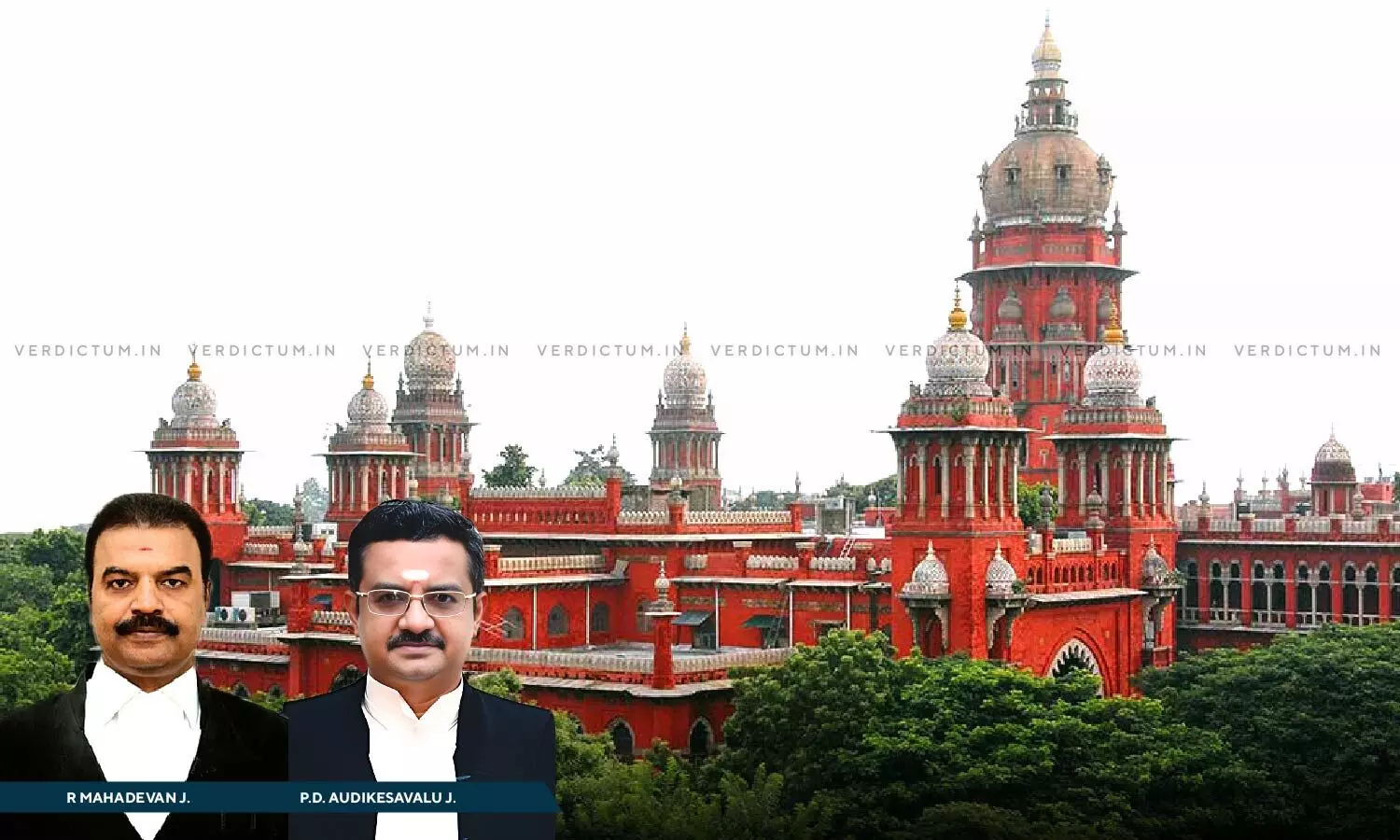
Temple Properties Being Heritage Sites Are Protected Under Articles 25 & 26, Cannot Be Gifted Away Against Interest Of Institution: Clarifies Madras HC
 |
|Observing that the provisions of the Tamil Nadu Heritage Commission Act, 2012 are wide enough to cover temples, the Madras High Court held that Applicants after having participated actively, contributed with statistics, during inspections, and accepted to protect the temples with heritage value, cannot now be permitted to take a different stand stating that the temples are not covered under the Tamil Nadu Heritage Commission Act, 2012.
“By declaration of temples as heritage sites, their status as a symbol of culture, will not be disturbed; and that, the temples are protected under Articles 25 and 26 of the Constitution”, added the Court.
While emphasizing that government lands are to be first utilized for public purposes before the lands belonging to the temples are touched, the Division Bench of Justice R Mahadevan and Justice P.D Audikesavalu observed that temple properties cannot be gifted away against the interest of the institution.
“The alienation by the government can only be in consonance with the provisions and object of the HR&CE Act; and that, the actions taken by the HR&CE Department shall always be subject to judicial review as this Court being one of the guardians of the rights guaranteed by the constitution, is vested with such power”, added the Bench.
The observation came while answering to review applications filed by the State Government as well as the Hindu Religious and Charitable Endowments Department (HR&CE Department) to review the common order dated June 07, 2021 passed in suo motu WP No. 574 of 2015 and WP(MD) No.24178 of 2018, in and by which, this Court had issued as many as 75 directions to the review applicants, for the purpose of safeguarding the cultural and heritage value as well the archaeological importance of the historical monuments, sites, temples and its properties.
Advocate NRR. Arun Natarajan appeared for Review Applicants, whereas ASG G. Karthikeyan appeared for the Respondents.
Stating that the ancient temples in Tamil Nadu, the most in the country, carry a cultural heritage, the Bench elaborated that the temple lands gifted by pious philanthropists, play a very important role in the sustenance of temples and it is the duty of the administrators of the temples, for which endowments have been made, to preserve the same, as it is settled law that the conditions in gift are to be complied.
While highlighting the role of the HR&CE Department and Mutts in the administrative process, the Bench clarified that the directions issued by the Court earlier are a step towards the protection of not only the places of archaeological importance, but also the culture, tradition, properties, and the activities associated with such sites including temples.
Stating that the present petition is a suo motu Public Interest Litigation emanated from the court for failure of the State to take steps to perform its duties entrusted under Constitution for the protection of the cultural, traditional and religious rights and for the preservation of the sites of archaeological importance, the Bench observed that the State having all along contended that it was committed to bring into force the Act and to preserve the places of historical importance, cannot now question the directions or authority issued by this court.
Finding that the object of the Tamil Nadu Heritage Commission Act, 2012 is to protect the places of cultural and historical importance, the Bench stated that the definition of “local authority” in the 2012 Act is to be amended to include “any other authority under whom any site, building, monument or any other place of historical, architectural or cultural importance rests or to whom such functions or responsibility is entrusted by the State”, to remove all the doubts.
While rejecting the request to reconstitute the State Level Committee as State Heritage Commission, the Bench clarified that the Heritage Commission is not only for the temples, but also for all other structures, which have cultural and heritage value.
While clarifying on the direction issued by this Court that CAG audit shall be done with ASI expertise to assess the damage structurally and evaluate the value of the antique destroyed, the Bench observed that such a direction was issued only in the interest of the temples and all places of historical importance, as the officials of the HR&CE Department so far, have not maintained proper accounts relating to income from the lands, the extent of lands and leases, etc.
Stating that necessity and beneficial intent being a pre-requisite condition, must be satisfied before the decision to even lease out the property for more than five years, the Bench elucidated that “for alienation of the immovable properties belonging to the religious institutions, all the conditions stipulated in the proviso like publication, calling for objections and previous sanction from the Government and explanation to Section 34 of the HR&CE Act have to be scrupulously followed and it has to be established that such alienation is beneficial to the interest of the temple or institution and that, the alienation is the only option to ensure that the activities of temples including performance of rituals will be disturbed, if the property is not sold”.
Lastly, highlighting that the State is bound to comply with the provisions of the Minimum Wages Act in respect of the temple employees, the High Court made it clear that just because the scheme of administration of the temple contemplates payment from the income of the temple, the minimum wages cannot be denied.
Cause Title: Chief Secretary and Ors. v. Director, Archaeological Survey of India and Ors.
Click here to read/download the Order